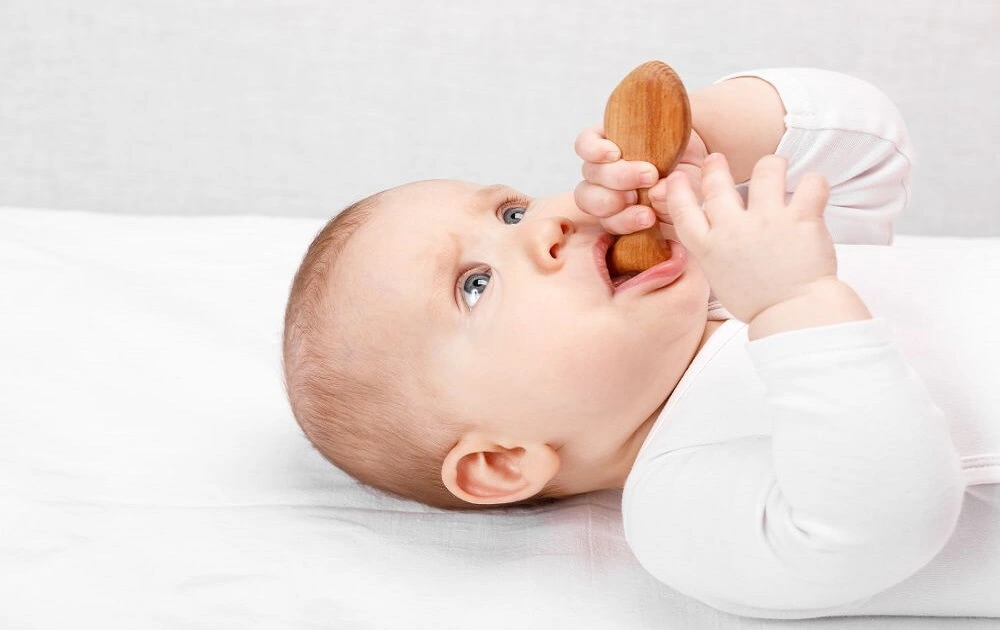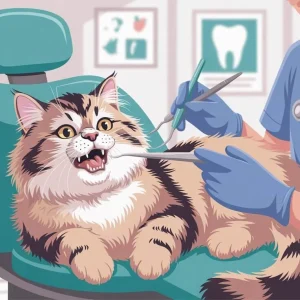Teething is challenging enough—but the sudden sound of your baby grinding teeth might catch you off guard. If you’ve heard that squeaky, grating noise during nap time or bedtime, you’re probably wondering: Is this normal? Is it harmful? What should I do?
Baby grinding teeth, medically known as bruxism, is more common than many parents realize. Understanding what causes it, when it’s harmless, and when it needs attention can bring peace of mind—and help you support your baby’s dental development.

Content
Baby Grinding Teeth: What Does It Mean?
Bruxism in infants usually begins when the first few teeth erupt—typically around 6 to 12 months. At this stage, babies are curious and eager to explore new sensations, especially in the mouth.
Why do babies grind their teeth?
Some of the most common reasons include:
- New sensations: When teeth emerge, babies discover they can rub them together—often just out of curiosity.
- Soothing sore gums: Teething can cause pressure and irritation. Grinding might temporarily relieve this discomfort.
- Earaches or pain: Babies sometimes respond to discomfort in nearby areas (like the ears or jaw) by grinding.
- Bite adjustment: As the upper and lower teeth come in, the jaws are still finding alignment.
- Emotional stress: Though it may sound surprising, babies can experience stress or anxiety that manifests physically, especially at night.
Recognizing the Signs of Baby Grinding Teeth
You might first notice the sound before any visible symptoms. However, bruxism may also show up in other subtle ways.
Common signs include:
- Squeaky or scraping sounds during sleep
- Increased biting or chewing on toys, fingers, or clothing
- Restless sleep or waking more often
- Fussiness or apparent jaw tension
- Sensitivity to hot/cold food in older infants
Most of the time, these signs are mild and temporary—but staying observant helps catch any underlying issues early.
Can Baby Teeth Grinding Harm Their Smile?
Short-term grinding isn’t usually harmful, especially in babies with only a few teeth. But if left unchecked over a long period, bruxism can contribute to:
- Wearing down enamel: Leading to weaker or flattened baby teeth.
- Chipping or cracking: Especially if the grinding is forceful.
- Jaw discomfort: In older toddlers, it may cause TMJ strain or facial tightness.
- Tooth misalignment: In rare cases, consistent grinding can affect how the bite develops.
If your baby is grinding hard, frequently, or past the toddler stage, a pediatric dental evaluation is a smart step.
How to Help When Your Baby Is Grinding Teeth
While you can’t always stop grinding instantly, there are several ways to soothe your baby and minimize the habit.
Simple home strategies include:
- Offer cold teething rings: Chilled (not frozen) toys can ease gum pressure and give something safe to bite.
- Use teething gels or pain relievers: With your pediatrician’s guidance, infant-safe options can reduce inflammation.
- Gum massage: Gently rubbing your baby’s gums with a clean finger can provide calming relief.
- Minimize stress: Create a predictable routine and calming environment to reduce emotional triggers.
- Avoid bottles at bedtime: For older infants, this helps avoid jaw tension and supports better sleep.
Natural Remedies That May Help
If you’re seeking holistic or supportive options, here are a few additional tips:
- Warm compress: A gentle compress on the cheeks before bed can relax facial muscles.
- Essential oils: Diffusing calming oils like chamomile or lavender (safely, and only under pediatric guidance) may aid sleep.
- Adjust sleep position: If your baby sleeps on their back, consider gentle changes to ensure comfort without head strain.
Always consult your pediatrician before using herbal or homeopathic remedies with babies or toddlers.
When Should You See a Pediatric Dentist?
You don’t need to rush to the dentist at the first grind—but if any of the following apply, it’s best to seek guidance:
- Grinding persists past 3 years of age
- Visible wear or flattening of the baby teeth
- Your baby shows signs of pain or avoids eating
- Grinding interferes with sleep or mood
- You suspect issues with jaw alignment or bite
Pediatric dentists are specially trained to monitor developing mouths. Even if the issue is mild, they can offer reassurance and preventive advice.
How a Dentist May Treat Baby Teeth Grinding
Most cases of baby grinding teeth don’t need dental intervention. But if it becomes chronic or severe, treatment may include:
- Monitoring bite development
- Custom night guards for older children (rarely needed for infants)
- Referral to an ENT if ear pain or airway issues are involved
- Behavioral guidance to reduce nighttime stress or habits
Your dentist will tailor any treatment plan based on your child’s specific needs, growth stage, and symptoms.
Final Thoughts
Hearing your baby grind their teeth can be unsettling, but in most cases, it’s just a harmless part of growing up. As your child adjusts to new teeth, sensations, and sleep patterns, occasional grinding is completely normal—and often short-lived.
By offering comfort, keeping up with good oral habits, and scheduling regular dental checkups, you can help your baby navigate this phase with ease. And if anything feels out of the ordinary, your pediatric dentist is there to guide you every step of the way.
FAQs
Is baby grinding teeth at night normal?
Yes. Nighttime bruxism is common during teething and usually not a cause for concern.
How long does teeth grinding last in babies?
Most babies stop grinding teeth by age 3, especially once teething discomfort subsides.

Jesus is a health blog author who has been writing about nutrition, fitness and healthy living for over 10 years. He also loves to run, hike and bike with her wife.






